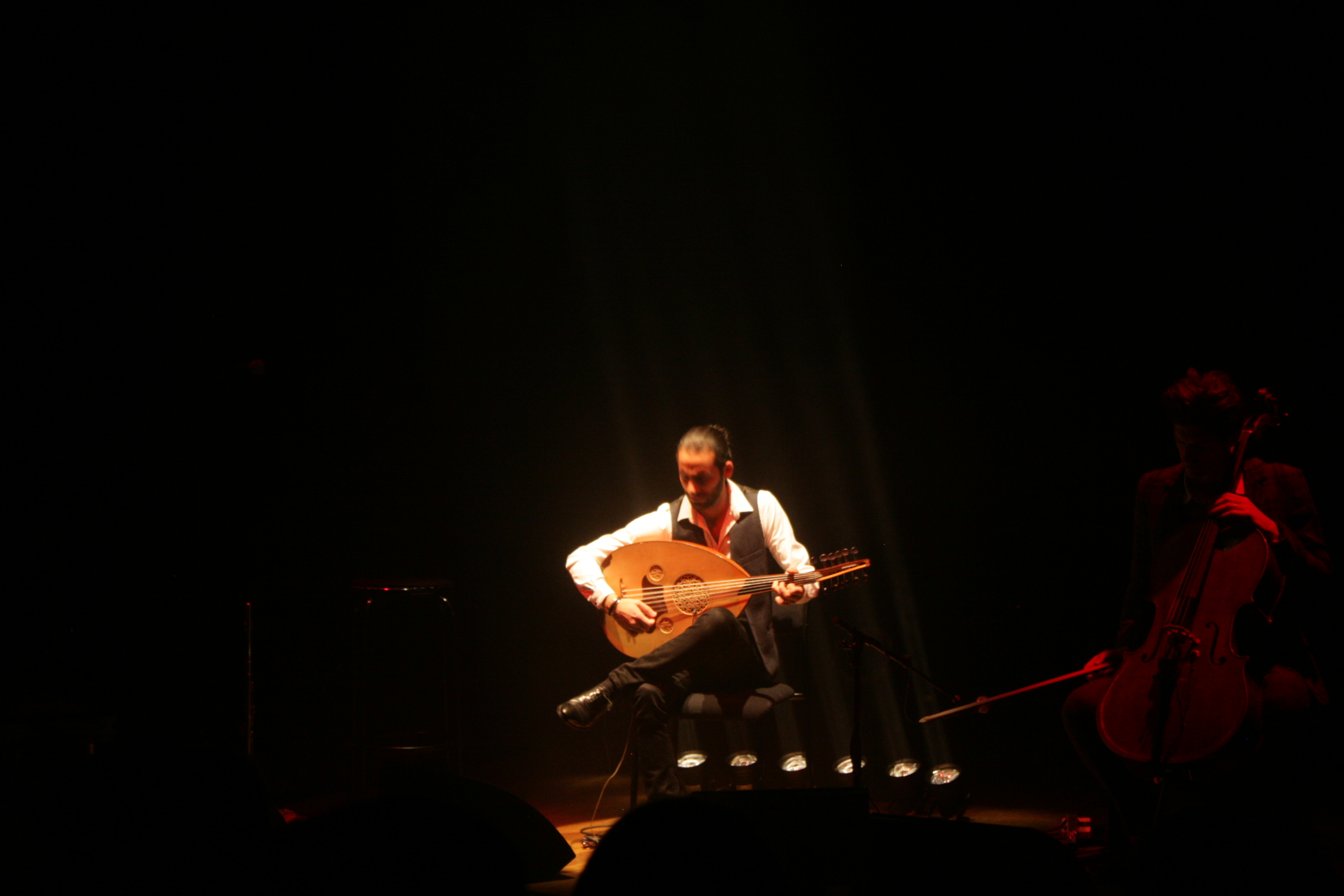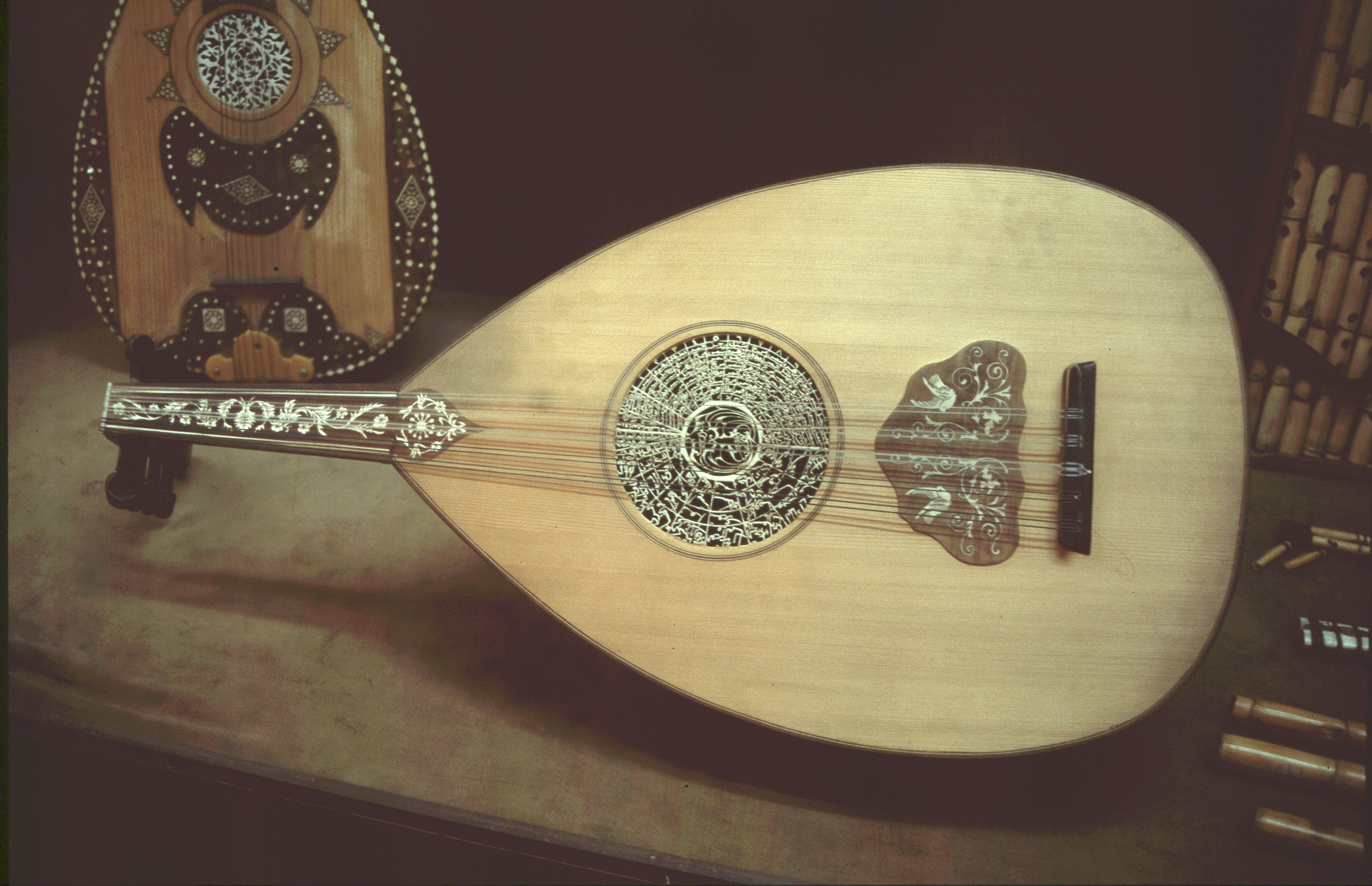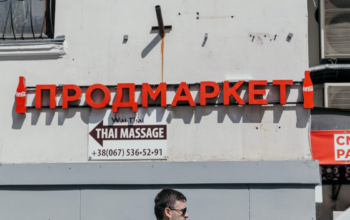Hopes and dreams and desires are inherent to the human condition. When far away from loved ones, we experience a sense of longing and nostalgia. Different people find different ways of expressing these feelings; some find a language in art, some in music or poetry. The editors of Pike and Hurricane had a unique opportunity to sit down with Adnan Joubran, a world renowned Palestinian musician, to discuss the language and power his oud gives him.
Musical evolution
The oud is an ancient stringed instrument popular in the Middle East. The expertise in the instrument has been in Joubran’s family for a long time:
“I come from […] a family of oud makers and musicians, my father is the third generation in the family who builds the instrument and my brother is the fourth.”
Joubran explains to us how he was enticed by the oud in his youth:
“[…] in the year 2003 there was this kind of phase where I just started to play the oud on my own in the house and I felt it could be my language.” His big brothers supported him and that is how Le Trio Joubran came to be. He explains his path in more detail:
“In 2004 we formed the band Le Trio Joubran, and in 2014 I made my own band. Here I am in Sweden making my own show.”
Many things have happened in the world and in the music scene as Joubran’s career has evolved:
“The oud was only for the old people, culturally the instrumental music is only for the old people. We’ve made a big movement, not only us, but a lot of other musicians too. Young people find it trendy to listen to Trio Joubran.”

Dimensions of hope
When asked what music can do that politics cannot Joubran answers:
“I think with my art I can prove I have existed, I can prove that there is culture,” he says. Further in the interview he explains:
“I am always pro-culture. We should be building history. Whatever we do good today one day will become folkloric, one day will become tradition. In 50 years my music will become tradition. Mozart was contemporary then, he was rebellious then, but now it’s classical,” Joubran asserts. He continues by explaining that music cannot come just from an idea, it comes from history:
“There is culture, there is Palestine, it was there, it is still there.”
Like many other Palestinians, Joubran is a part of the Palestinian diaspora, splitting his time between London and Nazareth. According to him the diaspora is important in preserving Palestinian identity and culture because “each member is a whole nation,” he emphasises and adds:
“I’ve been lately in Chile. There’s more than 400,000 Palestinians in Chile. [Many of them] went in the 1920s. And it’s nice to see in their houses ouds from that time. For me that was so moving.”
During our interview we try to stay away from politics. Nevertheless, we briefly discuss his hopes for the future of Palestine:
“I said earlier I am a bit hopeless, but my mission is to give hope”, he asserts. Joubran’s mission of giving hope comes out of necessity:
“Unfortunately we live in a world where you wake up and you see the news and you suddenly get paranoid: […] is [this] the life that we came for or is [this] the world that we are living in?”
Joubran tells us about a track called ‘I wish I were a tree’ from his latest album:
“We are here only to grow just like the trees. […] we are here just born to love and just born to grow the one next to the other, not to be uprooted, not to be killed. This tree can have red leaves, I can have different coloured leaves, we are different but we should just live this difference and enjoy the beauty that we give to this world, with our differences,” Joubran describes. In addition to giving an awareness of cherishing our differences and a dimension of hope to the listeners, he wishes to provide a space to drop a tear or to get a smile on their faces.
Tears or smiles, Joubran does not seem to give up hope:
“Everyday I wake up with a different dream. I think my pleasure in life is just to dream, to keep dreaming. The way home is nicer than home. […] The pleasure is not fulfilling your dreams, it’s the pleasure of dreaming.”

By Anna Bernard
Photo credits:
- Captain.orange, Oud, Attribution-NoDerivs 2.0 Generic (CC BY-ND 2.0)
- Ida Sharla Løjmand, All Rights Reserved
- Ida Sharla Løjmand, All Rights Reserved










